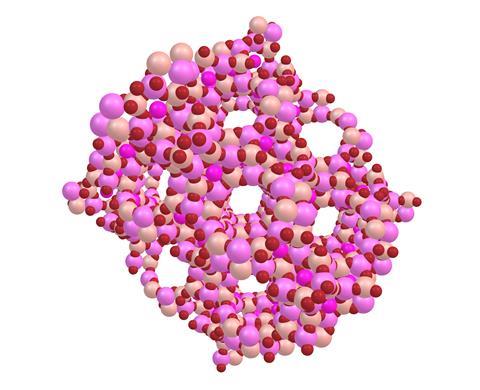The pursuit of flavor often walks a fine line with health concerns, especially in the culinary world. Car manufacturers have long utilized zeolites—porous aluminosilicate minerals—to filter pollutants from exhaust fumes. Now, a groundbreaking study conducted by researchers at the University of Reading in the UK reveals a novel application for this technology: reducing carcinogenic compounds in smoked foods while enhancing flavor.
Leading this innovative research, flavor chemist Jane Parker and her team have refined zeolite filters specifically to target polycyclic aromatic hydrocarbons (PAHs). These hazardous substances are produced when cooking food at high temperatures, such as during barbecuing. While animal studies suggest that PAHs may contribute to cancer risk, the connection in humans remains ambiguous, highlighting the need for careful examination of cooking techniques.
In their experiments, Parker’s team demonstrated that using zeolite filters could decrease PAH levels in smoke used for food preservation and flavoring by an impressive 93%. The findings were recently shared at the American Chemical Society’s spring meeting in New Orleans, which showcased an exciting collaboration between the University of Reading and Besmoke, a smoking company based in the UK. Besmoke’s proprietary Pure Smoke Technology (PST) was put to the test, revealing significant potential for healthier smoked foods.
The researchers applied this technology to smoke various food items, including tomato flakes, coconut oil, and water, using both filtered and unfiltered smoke for comparison. Notably, the smoked tomato flakes were later blended into cream cheese, while the coconut water served as a brining agent for chicken. An expert tasting panel confirmed that the foods treated with PST featured fewer harsh flavors and exhibited a more rounded, balanced taste. In contrast, the products smoked with unfiltered smoke were often marked by negative flavor descriptors like “ash tray” and “acrid smoke.”
Parker expressed her amazement at the unexpected outcome: “Whereas we started off trying to reduce carcinogens, what we’ve ended up with was reducing carcinogens and producing a technology that made a flavor that was superior to that of the traditional smoking process.” This revelation underscores a dual benefit—healthier food without compromising taste.
Chemically Profiling Taste
To gain deeper insights into the changes in flavor profiles, the research team employed mass spectrometry to analyze the compounds present in both types of smoke. The chemical profiles revealed a notable phenomenon: the zeolite filter primarily removed higher molecular weight compounds, which are likely responsible for the harsher flavor and aroma characteristics often associated with smoked foods.

Classic smoky compounds such as guaiacol, syringol, and 4-vinylguaiacol were found to decrease significantly when using filtered smoke, while other flavor compounds remained relatively stable. This balance of flavor showcases Besmoke’s innovative x-ray crystallography techniques employed at the University of Reading, which enabled the tailored structural modifications necessary for the zeolite to effectively trap PAHs while allowing flavorful compounds to flow through.
Importantly, Parker noted that incorporating zeolite technology does not appear to inflate the costs associated with producing smoked foods. “The zeolite itself is dug out of the ground, and it is very cheap,” she explained, mentioning that the PST filter even accelerates the smoking time from three days down to about 12 hours. This efficiency could appeal to both manufacturers and consumers in the food industry.
While zeolite filters hold potential for applications beyond the kitchen—such as in cigarette filters or adaptable barbecue systems—Parker clarified that Besmoke’s current focus is on developing ingredients for the food industry. Currently, the market includes PST-flavored products in the UK, including a distinct smoky ginger ale. Interestingly, foods flavored with PST are considered natural smoke products, sparing them from the regulatory challenges associated with traditional smoke flavorings.